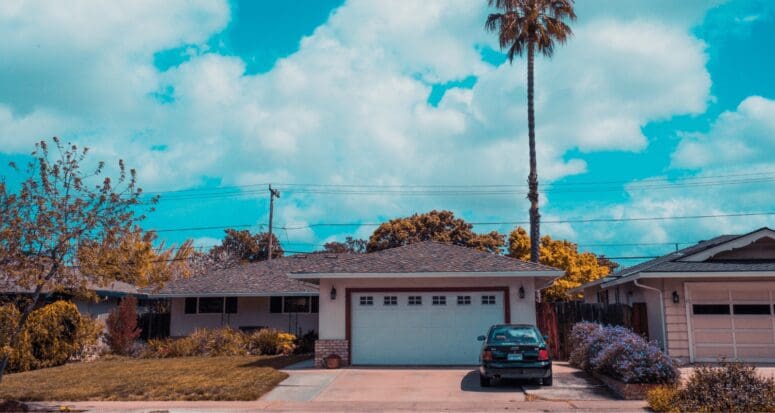Why You Need to Think About SEO When Selling a Home
- Published on
- 6-8 min read
-
 Katie Bassett Contributing AuthorClose
Katie Bassett Contributing AuthorClose Katie Bassett Contributing Author
Katie Bassett Contributing AuthorKatie is a San Francisco based journalist and content specialist with over 4 years of experience in real estate and technology. She holds a B.S. in Logistics, Materials, and Supply Chain Management from Arizona State University.
You’ve created a property listing with your real estate agent, and you think it’s looking pretty great. You’ve got professional images, and crafted an appealing home description that should get buyers hitting the contact button.
But how will buyers find this page among the billions already populating the web?
Time for you and your real estate agent to get familiar with real estate SEO.

A 30-second explanation of search engine optimization (and why you should care)
SEO—or search engine optimization—is all about making your page easy to find online. Since 99.9% of the world finds stuff online through sites like Google, you need to help them see your page as a great match for people typing in certain words and phrases.
These days, home listings are at buyer’s fingertips, anywhere at anytime. Without a strong digital presence, you could be missing out on a huge opportunity to get your home sold quickly at your initial asking price.
According to the National Association of Realtors Home Buyer and Seller Generational Trends 2017 report, over 50% of buyers from all generations frequently used the internet to search for their home. On top of that, over 93% of buyers 36 years and younger said that they frequently used the internet during their home search process.
Then there’s SEO for real estate websites
Similar to Google, real estate websites act as a search engine that help buyers quickly find the home of their dreams. Two great examples include the MLS and Zillow:
The MLS, or the multiple listing service, is an electronic database that offers up-to-date information about home listings. A real estate agent can use MLS as a search engine to identify homes on the market and match the needs of their buyer. By typing in keywords, home listings that mention these features will appear.
Zillow, the most highly trafficked consumer real estate website, acts as a search engine for home buyers. When a buyer goes to the Zillow homepage, they can type in a desired geographical area then use filters to help narrow down their search.
If a buyer filters for 2+ baths and additional keywords like “pool” and “garage,” Zillow will serve up listings accordingly.

The good news is: you can work with an agent to optimize your home listing to boost your listing’s visibility on the web and drive buyers to it.
Keep in mind that in SEO, if you’re not first you’re last.
In fact, studies indicate 71% of searchers will click on a result on the first page. Of that, 33% of those people click on the page that ranks in the first position, and 15% click on the second ranking page.
Here are 3 things that will boost your real estate SEO in no time
There are a variety of factors that influence whether property achieves that top spot in search results, so many factors go into the algorithms these days that even Google engineers can’t tell you exactly why someone ranked the way it did.
But here’s what we know works because we’ve seen it time and time again:
- Include sought-after Keywords.
Your property listing should include the keywords that your ideal buyer would search for. Words like “find a house in San Diego” or “2 bed, 2 bath.” But that doesn’t mean you should “stuff” attractive words that buyers like into a home description.Search engines are smarter than that. Instead, you’ll want to select the targeted words you want to highlight, and then use them naturally throughout compelling copy.Be sure to include your keywords in the title of the posting, within the URL, throughout the content on the page, and in the titles of the images you post.The types of keywords to include in your title could be “2-story,” “single-family home,” “red brick,” or “5 bedroom.” Ask your real estate agent what keywords they like to use.These are just a few examples of common keywords buyers will use to filter their search.
Features like a pool, hot tub, or office space should be included within the description but won’t take priority since they’re secondary features that buyers want.
- Add a handful of variations on your keywords.
Search engines are machines, they don’t read text the way that humans do — they often lack context clues. That’s why adding specific keywords to your copy is great, but you need to expand on those and use slight variations of them to cover all your bases.For example, if you target “outdoor jacuzzi” in your listing, you should think of other ways a buyer might look for that feature and what they might search.Additional words to include might be “hot tub outdoors,” “massage water jets,” or “outdoor spa.” - Share your listing on social media.
The more eyeballs you get to your listing the better and the more upvotes, likes, and retweets the better too. Social signals refer to a web page’s collective shares and visibility on various social media platforms (like Facebook or Twitter).Improving these metrics often correlates with better rankings on Google search.Studies show that social media expands the reach of a webpage and improves brand awareness for a particular product/service.As a homeowner, sharing your home listing on social media sites will increase exposure of your listing and help improve your placement on Google and real estate sites.Ask your real estate agent what their social media strategy is and how they plan to promote your listing to their followers and to hungry potential buyers in your area.
More quick SEO tips that will help drive buyers to your listing
Your real estate agent is the key to SEO success, so it’s crucial to discuss a strategy with them. But before you come in hot, making accusations about a lack of this digital practice, do your homework. There are a few things you can look for to check your agents’ work.
- Does your real estate agent’s website have client reviews?
If you’re creating a property listing on your real estate agent’s website (instead of, or in addition to, other public real estate sites) you should check their client reviews for a few reasons.Aside from gauging their success rates, the presence of client reviews actually helps a website rank over its competitors. Google takes positive reviews into account when determining which websites to showcase in the top results.
- Does the title of your property listing highlight primary features?
This element of your listing is easy to optimize and can help you rank higher than other sellers you’re competing against. Titles are a top consideration for both search engines and buyers browsing homes in the search results.Make sure your title calls out your home’s biggest sells and features. These same keywords should also appear through your listing’s content.“SEO-wise, we usually use a punchy title ‘Rarely Available Single Story Hill San Leandro Hill- First Open House, Will Go Quick,’” says Nicolas Jonville, who ranks in the top 1% of real estate agents in San Marcos, California. “It needs to be catchy, not just a regular, ‘4-bedroom home in so-and-so neighborhood.’”
- Do the images in your property listings use keywords?
If you hover your mouse over an image, it will often show the title of that image. Be sure that the image on your property listing is optimized to include a description of the picture and doesn’t just list a series of random letters and numbers.Search engines are able to look at those the images as another clue to determine what your home listing page is about and rank it accordingly. - Are local SEO practices baked into every level of your listing?
You’ll want to think about local search terms that buyers might be looking for. For example, including schools that are around your property will capture the attention of buyers looking for these.
Are you ready to take your real estate SEO to the next level?
Don’t let the long hours you spent creating a great property listing page go to waste. The visibility of your listing is in your control, so it’s time to capitalize on that and increase the number of interested buyers.
Using SEO best practices will increase traffic to your property listing and ultimately help you sell your home faster at the initial asking price. To make this happen, work with with your real estate agent from the get-go to talk about your SEO game plan.
Article Image Source: (Jose Rago/ Unsplash)
